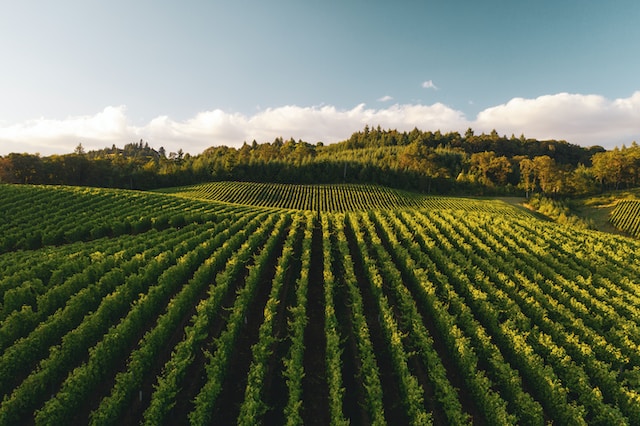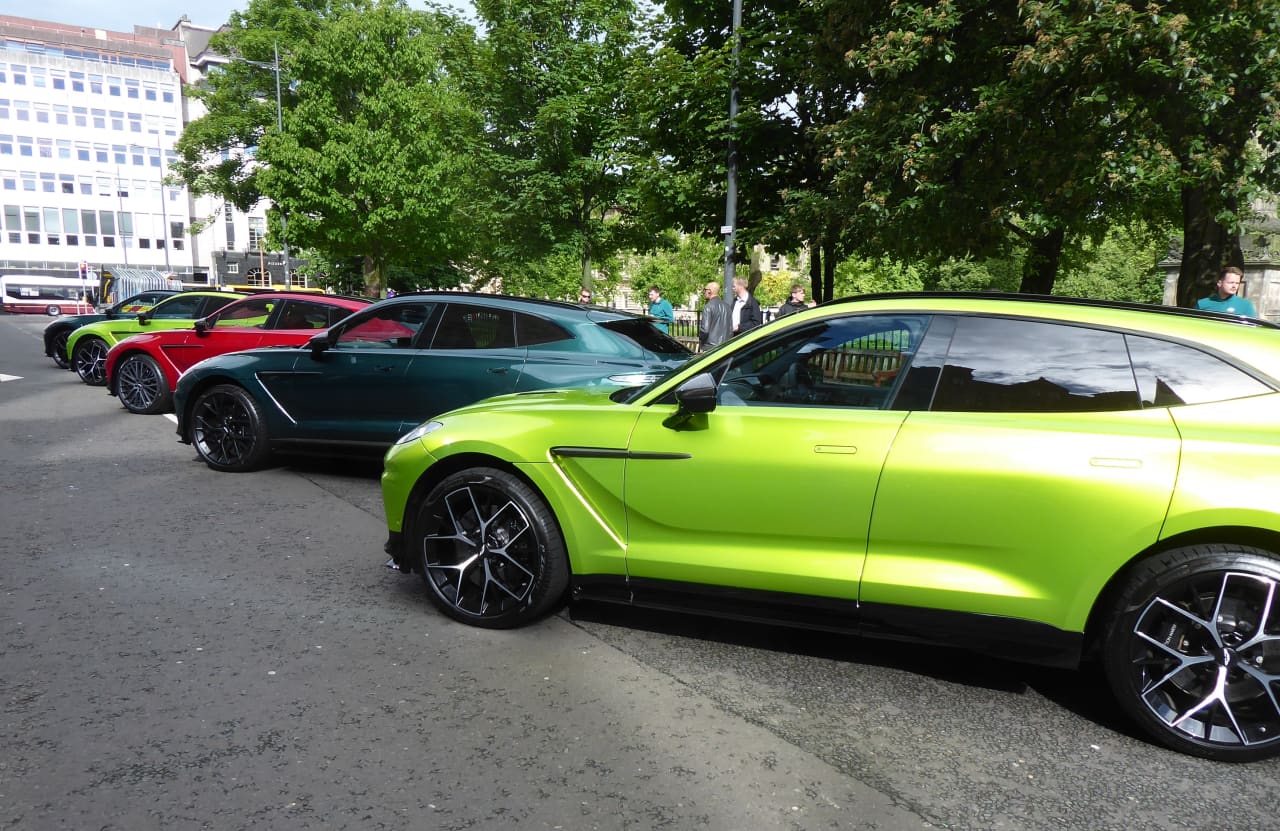For These Influential Families, Life is Like ‘Succession’—but With More Wine and Far Less Drama
Some of the top companies in California wine are intergenerational concerns. How do these families manage to pass the torch gracefully, and what can we expect from the next generation?
IN ITALY, THEY have a saying about family-run companies, shared by an Italian winemaker I know: “The first generation builds it, the second maintains it and the third destroys it.”
I’m happy to report that under the stewardship of this winemaker and his sister—the second generation to run their winery—his family business is flourishing. How do some families fit the personal with the professional to create successful intergenerational businesses, while others do not? I talked with three prominent California wine families who seem to have figured it out.
Ramey Wine Cellars, Healdsburg
It was never a given that David Ramey’s children, Claire and Alan, would take over the family winery. “You can’t force it. It had to be natural,” said the elder Ramey, who has been making notable wine in California for 45 years, for other wineries as well as his own.
Founded by Ramey and his wife, Carla, in 1996, Ramey Wine Cellars produces a range of high-scoring wines, notably single-vineyard Chardonnays. David Ramey said, “We had a defining moment in March 2020 when a French company wanted to buy the winery.” While both Claire, now 32, and Alan, 31, were already committed to the winery, by collectively choosing to turn down the offer, they reaffirmed that commitment to their parents.
Both siblings hold the title co-president; each focuses on different aspects of the business, though all decisions are made jointly and their duties often overlap. Both Ramey children and their father taste all the wines together with Cameron Frey, vice president of winemaking, and Lydia Cummins, associate winemaker, and make final blending choices. But David Ramey is no longer at the forefront and no longer has an office at the winery. The second generation is making decisions, from pricing to production to experimenting with new wines, and that’s fine with their dad. “If you are going to do it, you’ve got to start to cede control to the younger generation,” he said.
Bien Nacido Vineyards, Santa Maria Valley, Santa Barbara County
The Miller family has been farming in California’s Central Coast for five generations. When fourth-generation brothers Steven and the late Bob Miller planted the Bien Nacido Vineyards in 1973, the Central Coast wasn’t highly regarded. Today, the 640-acre vineyard is considered one of the greatest in California and the source of some of the state’s most notable Pinot Noirs, Chardonnays and Syrahs.
The Millers sold grapes to famous names such as the late Jim Clendenen of Au Bon Climat, Bob Lindquist of Qupé and many others, but it took the fifth generation—Nicholas and Marshall Miller, together with their father, Steven Miller—to go ahead and finally produce their own Bien Nacido-designated wines and to open a tasting room. The family produced their first Bien Nacido wine in 2007, and just two months ago, the Millers opened the Gatehouse at Bien Nacido tasting room at the vineyard.
The younger generation continues to expand the business. For example, they just launched the nonalcoholic wine brand Hand on Heart, in partnership with Iron Chef Cat Cora. The secret to their success? “We are a very experienced team, and we understand each other deeply,” said Nicholas Miller.
K&L Wine Merchants
With three retail wine stores spread out between the Bay Area and Los Angeles and two more slated to open early next year, plus a large online sales operation, K&L Wine Merchants is one of the best-known names in retail wine in California and also one of its most dynamic.
K&L was founded in 1976 with one store and two partners: Clyde Beffa, Jr., a former dairy rancher, and Todd Zucker, who got his start in the insurance business. Today, the K&L empire is owned and operated by two generations of Beffas and Zuckers.
In the early years, the founding partners divided responsibilities, with Zucker in charge of liquor and Beffa handling the wine. As the wine side grew, Zucker transitioned to accounting and finance. Since joining in 1997, Zucker’s son Brian, focused on technology and marketing, has developed software critical to the expansion of K&L.
Beffa has turned much of the wine buying and wine-buyer oversight over to his son Clyde “Trey” Beffa III, who joined the company in 1997. The elder Beffa still buys a lot of the Bordeaux for K&L, however. “He’s kind of a control freak,” said Trey of his father. The two Beffas share a fondness for Bordeaux, but their tastes diverge. The father prefers older Bordeaux, whereas the son likes to drink Bordeaux when it is relatively young. “Before it begins to decline,” Trey explained. “I like a little more fruit in my wine.”
 Copyright 2020, Dow Jones & Company, Inc. All Rights Reserved Worldwide. LEARN MORE
Copyright 2020, Dow Jones & Company, Inc. All Rights Reserved Worldwide. LEARN MORE
This stylish family home combines a classic palette and finishes with a flexible floorplan
Just 55 minutes from Sydney, make this your creative getaway located in the majestic Hawkesbury region.
As Paris makes its final preparations for the Olympic games, its residents are busy with their own—packing their suitcases, confirming their reservations, and getting out of town.
Worried about the hordes of crowds and overall chaos the Olympics could bring, Parisians are fleeing the city in droves and inundating resort cities around the country. Hotels and holiday rentals in some of France’s most popular vacation destinations—from the French Riviera in the south to the beaches of Normandy in the north—say they are expecting massive crowds this year in advance of the Olympics. The games will run from July 26-Aug. 1.
“It’s already a major holiday season for us, and beyond that, we have the Olympics,” says Stéphane Personeni, general manager of the Lily of the Valley hotel in Saint Tropez. “People began booking early this year.”
Personeni’s hotel typically has no issues filling its rooms each summer—by May of each year, the luxury hotel typically finds itself completely booked out for the months of July and August. But this year, the 53-room hotel began filling up for summer reservations in February.
“We told our regular guests that everything—hotels, apartments, villas—are going to be hard to find this summer,” Personeni says. His neighbours around Saint Tropez say they’re similarly booked up.
As of March, the online marketplace Gens de Confiance (“Trusted People”), saw a 50% increase in reservations from Parisians seeking vacation rentals outside the capital during the Olympics.
Already, August is a popular vacation time for the French. With a minimum of five weeks of vacation mandated by law, many decide to take the entire month off, renting out villas in beachside destinations for longer periods.
But beyond the typical August travel, the Olympics are having a real impact, says Bertille Marchal, a spokesperson for Gens de Confiance.
“We’ve seen nearly three times more reservations for the dates of the Olympics than the following two weeks,” Marchal says. “The increase is definitely linked to the Olympic Games.”

Getty Images
According to the site, the most sought-out vacation destinations are Morbihan and Loire-Atlantique, a seaside region in the northwest; le Var, a coastal area within the southeast of France along the Côte d’Azur; and the island of Corsica in the Mediterranean.
Meanwhile, the Olympics haven’t necessarily been a boon to foreign tourism in the country. Many tourists who might have otherwise come to France are avoiding it this year in favour of other European capitals. In Paris, demand for stays at high-end hotels has collapsed, with bookings down 50% in July compared to last year, according to UMIH Prestige, which represents hotels charging at least €800 ($865) a night for rooms.
Earlier this year, high-end restaurants and concierges said the Olympics might even be an opportunity to score a hard-get-seat at the city’s fine dining.
In the Occitanie region in southwest France, the overall number of reservations this summer hasn’t changed much from last year, says Vincent Gare, president of the regional tourism committee there.
“But looking further at the numbers, we do see an increase in the clientele coming from the Paris region,” Gare told Le Figaro, noting that the increase in reservations has fallen directly on the dates of the Olympic games.
Michel Barré, a retiree living in Paris’s Le Marais neighbourhood, is one of those opting for the beach rather than the opening ceremony. In January, he booked a stay in Normandy for two weeks.
“Even though it’s a major European capital, Paris is still a small city—it’s a massive effort to host all of these events,” Barré says. “The Olympics are going to be a mess.”
More than anything, he just wants some calm after an event-filled summer in Paris, which just before the Olympics experienced the drama of a snap election called by Macron.
“It’s been a hectic summer here,” he says.

AFP via Getty Images
Parisians—Barré included—feel that the city, by over-catering to its tourists, is driving out many residents.
Parts of the Seine—usually one of the most popular summertime hangout spots —have been closed off for weeks as the city installs bleachers and Olympics signage. In certain neighbourhoods, residents will need to scan a QR code with police to access their own apartments. And from the Olympics to Sept. 8, Paris is nearly doubling the price of transit tickets from €2.15 to €4 per ride.
The city’s clear willingness to capitalise on its tourists has motivated some residents to do the same. In March, the number of active Airbnb listings in Paris reached an all-time high as hosts rushed to list their apartments. Listings grew 40% from the same time last year, according to the company.
With their regular clients taking off, Parisian restaurants and merchants are complaining that business is down.
“Are there any Parisians left in Paris?” Alaine Fontaine, president of the restaurant industry association, told the radio station Franceinfo on Sunday. “For the last three weeks, there haven’t been any here.”
Still, for all the talk of those leaving, there are plenty who have decided to stick around.
Jay Swanson, an American expat and YouTuber, can’t imagine leaving during the Olympics—he secured his tickets to see ping pong and volleyball last year. He’s also less concerned about the crowds and road closures than others, having just put together a series of videos explaining how to navigate Paris during the games.
“It’s been 100 years since the Games came to Paris; when else will we get a chance to host the world like this?” Swanson says. “So many Parisians are leaving and tourism is down, so not only will it be quiet but the only people left will be here for a party.”
This stylish family home combines a classic palette and finishes with a flexible floorplan
Just 55 minutes from Sydney, make this your creative getaway located in the majestic Hawkesbury region.






















